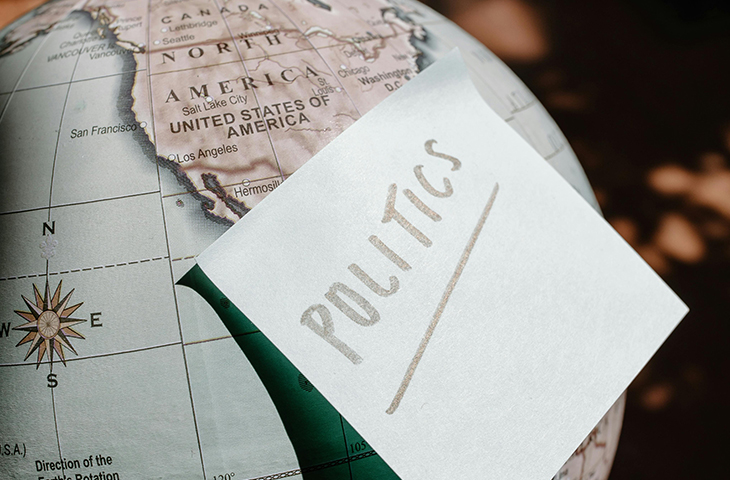San Antonio's Mayor Worked To Build A Strong Relationship With Canada. Tariffs Would Decimate Its Economy.

San Antonio sends almost half its exports to Canada, which makes the Texas trade hub one of the most vulnerable U.S. cities in the tariff war.
Mayor Ron Nirenberg says one in five jobs in his state is exposed by President Donald Trump’s new tariff regime — “300,000 jobs immediately on the block.”
The Canadian Chamber of Commerce recently ranked San Antonio, Detroit and Kansas City at the top of a list of U.S. cities that are export-dependent on Canada. Atlanta, Pittsburgh and Seattle also made the list. Chamber economist Andrew DiCapua says the framing of the new study was deliberate.
“Hearing prices are going to go up is one thing,” he told POLITICO. “But if you say that as a result of trade frictions, your business sales will go down, stores and plants will close, you're going to have a recession in your local economy and you're not going to have a job — that's a lot more powerful.”
We spoke with Nirenberg on Tuesday, hours before Trump’s global tariffs kicked in.
Canada escaped the “Liberation Day” sweep, but has been hit by auto, steel and aluminum tariffs, with more to come. On April 9, Ottawa introduced counter measures on U.S. vehicles.
"The reality is the modern economy does not exist without cooperation in the globe — across the globe," Nirenberg told POLITICO. "So the idea that all of a sudden we can become isolated and maintain prosperity for our people is just ludicrous."
Our conversation has been edited for length and clarity.
The Canadian Chamber of Commerce put San Antonio atop a list of U.S. metro areas that are most export dependent on Canada. Were you surprised to discover that?
No, I wasn't. Our economy has transformed over the last 25 years as a result of a diversification of industries, but significantly the rebirth of the manufacturing sector as a result of free trade in North America. It has rebuilt the middle class, and it employs tens of thousands of San Antonio workers, becoming the leading employment sector in our city. So it is no surprise to me that roughly half of the $13-plus billion dollars of exports that come out of San Antonio companies — locally owned companies, in large measure — are going to Canada.
What is your current level of concern?
It's grave concern — and a tremendous amount of anger at the combination of malice and incompetence coming out of the White House.
What are you hearing from the local business community?
What I'm hearing from the local business community — small businesses, in particular — is that they are trying to deal with the impacts on a tactical level. The reality of a lot of these businesses is that they are grinding every single day. It's hard enough to forecast purchases, supplies and fluctuations in payroll without the escalating trade wars that have been initiated. Some companies are obviously concerned about the escalations overall, but are reluctant to speak out because of the very clear willingness of the administration to retaliate against anyone who would speak up.
There is a “Buy Canadian” movement afoot up here. Do you have any sense of it?
I haven't personally seen that campaign, but it's not surprising. There's nothing that spurs patriotism like being attacked. And we are unfortunately seeing the White House make unprovoked attacks on our strongest allies.
Last year, Canada's ambassador and a team of top ministers spent much of 2024 visiting with U.S. officials. Did you meet with any officials?
Well, I meet with my counterparts at the local level and in cities all across the world. And I do meet quite a bit with Canadian peers — and not just because we're strategic allies and economic partners in the continent and along the USMCA trade corridor, but because it's important to me that our city is connected to the world.
But I did visit Quebec City last year, along with the World Economic Forum. I was a speaker there in Montreal last year. Quebec City Mayor Bruno Marchand and I are good friends, and we established a “Friendship City” agreement just a few weeks ago. That was in the works prior to the election, but was made all that important because of what's happening at the national level.
I'm a former chairman of Sister Cities International. I believe very strongly that the relationships that are formed between communities — citizen to citizen, business to business — are the most important bridges that we build if we're going to have a future where there's peace between countries and not conflict.
There is talk of broken trust. Is that a concern of yours as you deal with cities all over the world?
Without a doubt, it's a common refrain. The United States has been the pillar of democracy, freedom, liberty for many generations, and the malice of one man is changing that reputation almost overnight. I hope we can restore that trust, but it's going to take a significant amount of work to demonstrate to the rest of the world.
The current prime minister of Canada has agreed to meet the president after our federal election at the end of this month. You mentioned the USMCA. Do you see a future for that in all of this trade that we're talking about?
I sure hope so. NAFTA certainly had its flaws, but it opened up trade relationships that hadn't existed and helped spur the rebirth of many industries in the United States and Canada and Mexico. It's the framework of how we can create a more efficient, effective and fair economy throughout the continent, and one of the reasons why I believe the alliances were so strong and the three countries were secure. So I do believe it's important for the future. And I thought that President Trump believed the same thing when he renegotiated the darn thing.
The best trade deal.
Right.


